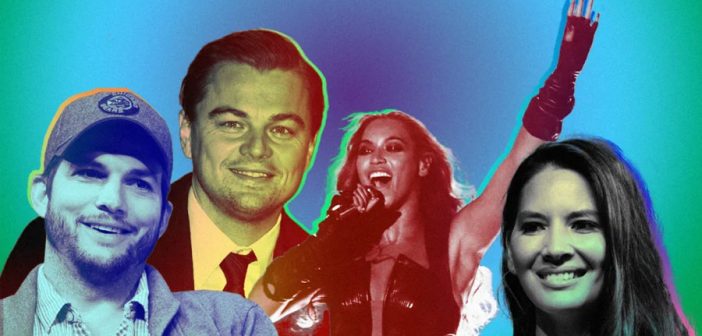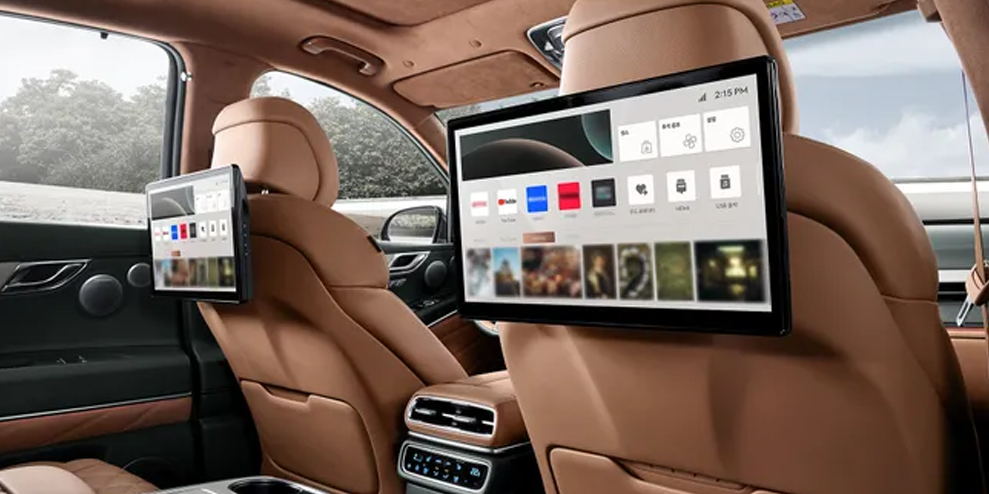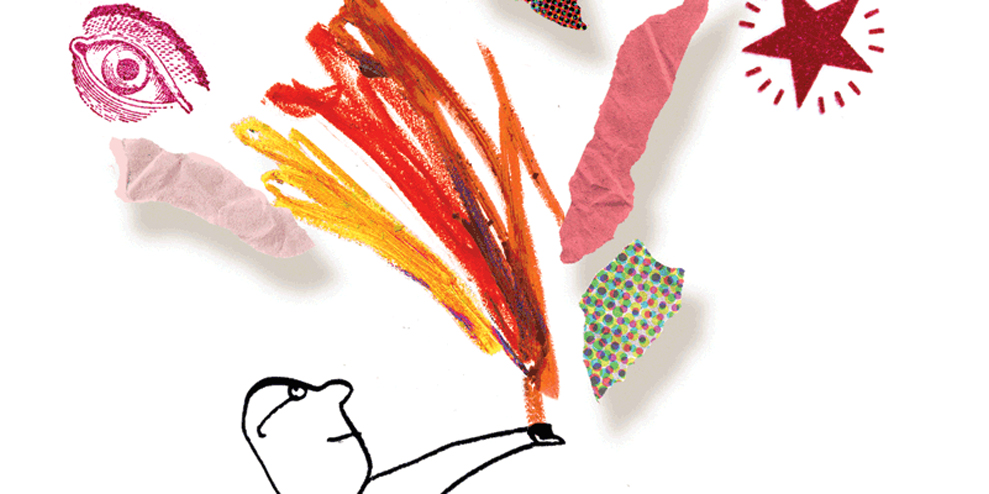Uber is going public at an $80 billion valuation in part thanks to its brilliant courting of entertainment-world celebrities. Its success has forever altered how Hollywood thinks about startups.
As Hollywood rejoices in the billions of dollars sloshing around thanks to Avengers: Endgame and the box office geyser it’s set off–the film has grossed $2.3 billion worldwide, making it the second-highest grossing film of all time–another financial windfall is about to prove even more lucrative for a handful of Hollywood elites: Uber’s initial public offering.
As of today, the ride-sharing service that’s valued at a whopping $80 billion will be available on the public stock exchange and is expected to raise as much as $9 billion, i.e., quite a bit more than the Marvel blockbuster. Although the biggest winners will be name-brand Silicon Valley investors and large global financiers like SoftBank, the Uber windfall isn’t limited to tech-world emissaries.
Uber, under cofounder and former CEO Travis Kalanick, recognized early the value of celebrity in building its brand, and shares in the company were Kalanick’s currency both to woo them and create an aura around his company once Uber became the hottest startup anyone had ever seen.
Among the big names that helped propel Uber forward (and which will now handsomely reap the benefits as investors) are Ashton Kutcher, one of Uber’s earliest fans, who operated almost like a paid spokesman for the company, and who invested $500,000 along with his investment partner Guy Oseary in 2012; Patrick Whitesell and Ari Emanuel (an early Uber rider), who run the talent and media empire Endeavor; music industry veterans Troy Carter and Adam Leber; Leonardo DiCaprio; Olivia Munn; Edward Norton; Jay-Z; Beyoncé; Will Smith; and Sophia Bush.
Although the sums of their investments have not been disclosed, according to the tech industry site The Information, one of the venture capitalists who invested in the same series B round in which many of these celebrities did will see his $100,000 stake be worth more than $13 million at the IPO.
This Uber phenomenon, though, is not just a singular event. The company effectively ushered in a new era in Hollywood, where celebrities are digital influencers, stars ranging from Gwyneth Paltrow to Jessica Alba pursue their own venture-backed startups, and the traditional talent agencies launch their own venture arms to help clients pursue entrepreneurial ideas. At a moment when the entertainment industry is in tumult, with movies and TV now often being merely an enticement to sell people other things, the world of tech startups offers celebrities the potential of a bigger payday for the same risk as their day jobs.
AN L.A. KID
Kalanick, who grew up in the San Fernando Valley and studied at UCLA (he dropped out to cofound a startup), viewed Hollywood with the kind of interest that only someone so close and yet so far away could. And Uber, after all, was originally conceived as a personal service for Kalanick and his friends to be able to order a town car whenever they wanted–just like a chauffeured movie star or industry executive.
Although Kalanick had never been part of the A-list celeb culture, that changed as Uber grew and he found himself a celebrity of sorts, welcomed into VIP clubs and rubbing elbows with people like Leonardo DiCaprio and Jay-Z. According to a New York Times Magazine piece, Kalanick was introduced to the L.A. nightlife by Uber investor Shervin Pishevar, who would bring Kalanick to clubs on weekends, providing him with a set of “club clothes.” Emil Michael, Uber’s former chief business officer, would also accompany Kalanick to L.A. parties.
Besides the glamour, returning to L.A. as a success story was also a redemption of sorts for Kalanick, whose first startup, Scour, which tried to be a Napster for video files, was invested in by CAA cofounder Michael Ovitz. The Hollywood kingpin signed on, taking a 51% stake in the company along with supermarket magnate Ron Burkle, and then sued Scour when the founders said they were going to look for other investors. Hollywood, fearful of piracy, sued Scour, too, for $250 billion, effectively killing the startup.
Kalanick was stung by the experience and told Fast Company in 2015, “In some way, L.A. respects the young guy that’s out there just trying to make it happen, but in some ways, they disrespect that, too.”
THE ASHTON EFFECT
Kalanick inherently understood the way in which he could cultivate Hollywood allure and how it could help Uber. In the early 2010s, as Uber soft-launched in new markets as it expanded from its San Francisco home, he hit upon the idea of enlisting local celebrities to take the first ride in a new market. The stunts added a bit of glamour, created a PR opportunity, and helped cement the idea that ordering a car via an app was cool. Plus, if Edward Norton or Tony Hawk would willingly get in a random car in this fashion, regular people had nothing to worry about in embracing this new behavior.
For Los Angeles, Uber first offered its service during Grammys weekend in 2012, a time when it would be most useful to people going from party to party. It made a point of starting in what it called its “Secret Phase,” knowing that the exclusivity of it would build buzz for when it had worked out some of the kinks and was ready to offer the service more widely.
In a car city like L.A., Uber was both a cool new product and a useful one. Stars could go out and have a drink and not have to worry about driving home. They could avoid paparazzi stalking their car. It fit into their lifestyles in a way that engendered loyalty. Because Uber started as a black car service, it differentiated it and elevated it from less flashy rivals like Lyft, Sidecar, and MyTaxi.
One of Uber’s earliest celebrity backer-fans was Kutcher, who was arguably the first Hollywood star to recognize the opportunity in Silicon Valley both from an investment and self-branding point of view. He put his genuine interest in learning about, and betting on, startups into being a venture capitalist himself, and his firm at the time, A-Grade Investments (with Oseary and Burkle), made prescient early investments in Airbnb and Spotify as well as Uber, and was worth an estimated $250 million in 2016.
Kutcher was also an early social media star and enthused about his investments on Twitter and Facebook. His actions created the playbook as other stars joined the platforms. Kutcher also turned regular media opportunities into Uber plugs. A Forbes profile of him in 2016 opens with Kutcher in the back seat of an Uber car being driven to a TV set.
“Those were the early stages of what is now known as influencer strategy,” says a source at a VC firm who requested anonymity. “When Uber came around, and similarly Airbnb, it was really the start of trying to bring in celebrities as backers to provide some version of influence and credibility.”
Back in 2009, when Uber was founded, the idea of a celebrity influencer was still a nascent one. Unlike a traditional spokesperson, an influencer has a more organic-seeming, less crassly commercial relationship with a product or brand. Social media, which was taking hold around the time Uber was formed, helped fuel this, giving stars a platform to speak their minds and plug issues and things they liked in an environment free of handlers and publicists. “It was so consumer-facing,” says one agent. “Talent likes to get behind things that are recognizable, things that look good. Uber, when it launched, was cool.”
Since then, we’ve seen other stars, from Justin Bieber to Sofia Vergara, align themselves with startups and take an equity stake in exchange for both the attention and insight they can bring to appealing to consumers. Talent agencies such as UTA have launched venture arms to help clients like Seth Rogen get into the cannabis business with his own Houseplant brand.
Kalanick also leveraged the value of celebrities and social media to influence regulators in his many fights with municipalities as Uber stepped on traditional rules about how cars are to be dispatched in a city. In 2015, for example, when New York City Mayor Bill de Blasio pushed a bill that would put limitations on the number of cars Uber could operate at any given time in the city, Kutcher–along with Neil Patrick Harris and Kate Upton–lashed out on Twitter. Soon after, de Blasio dropped the proposal.
THE GO-GO YEARS
As Uber began to catch on with celebrities, it played into the entertainment-world culture of red carpets and VIP rooms by turning people down. When Jay-Z reportedly wired money to an Uber executive in order to increase his investment, some of the money was wired back. Uber said it had too many interested investors. (The company nonetheless booked Jay-Z’s wife, Beyoncé, to perform at a private company event in 2015 in exchange for $6 million in restricted stock units.) Some turned Uber down. Kalanick at one point tried to lure Oprah Winfrey onto the company’s board; it never happened. But on the whole, an investment in Uber was a kind of cool-cred badge of honor for certain stars (something that Uber recognized and fueled by not freely distributing its shares).
In a 2013 Fast Company Q&A with Endeavor’s Emanuel and Whitesell, Emanuel called Uber “an incredible product,” saying that the company had approached him for client endorsements, but that “we think we can do a reality show like Taxicab Confessions.” (Ironically, it would be Lyft that ventured more deeply into branded entertainment, enlisting Kevin Hart and others to do the work of giving a pop-culture sheen to its ride-hailing service.)
When asked if part of the interest was the possibility of a big payoff, such as an IPO, Emanuel laughed and said, “Are you asking if we like money? Is that the question? Are you in Hollywood?”
After Emanuel and Whitesell acquired UFC in 2016 for $4 billion, they announced a roster of 23 celebrity investors, from Ben Affleck to Serena Williams, to add glitter to their sport and unleash a variety of promotional opportunities for it. The ride-hailing giant’s influence, whether direct or not, seems clear.
Uber, then, created Hollywood’s entrée into the wealth of Silicon Valley at a time when the movie and TV business was no longer about $20 million paydays and big back-end syndication deals, a time when George Clooney could make far more money with his tequila brand than he could ever hope to make with a Hulu series.
“Celebs were looking around, saying, ‘There are these billionaires out there that aren’t celebrities, people don’t know them, but they’re making more money,” says the agent. “How do we get in on that?”
–
This article first appeared in www.fastcompany.com
Seeking to build and grow your brand using the force of consumer insight, strategic foresight, creative disruption and technology prowess? Talk to us at +9714 3867728 or mail: info@groupisd.com or visit www.groupisd.com




